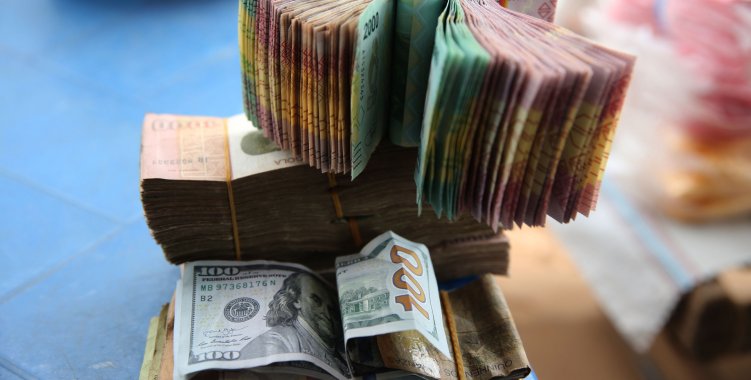According to the financial information agency Bloomberg, the kwanza is losing for the seventh consecutive day, reaching 804.37 kwanzas per dollar this afternoon, becoming the second worst currency in the world compared to the dollar.
The kwanza has already dropped 37 percent since May 11, following the government's decision to end state fuel subsidies, which led to strong social protest and a rise in prices.
The President, João Lourenço, has already defended that the central bank should implement measures to strengthen the kwanza, in addition to helping the economy to diversify and control inflation.
The third largest oil producer in sub-Saharan Africa did not sell dollars in April and May, according to the financial rating agency Fitch Ratings, which predicts that the Treasury will continue without intervening in the markets.
"The national Treasury reduced the sale of foreign currency because it charged less taxes and revenues from oil rights", commented researcher António Estote, from the Lusíada University of Angola, to Bloomberg.
Inflation in Angola rose to 10.62 percent in May, ending 15 months of decline after the government cut fuel subsidies.
The new governor of the National Bank of Angola has already revised the inflation forecast for this year upwards, now anticipating an increase in prices between 9 and 11 percent at the end of 2023.
On Friday, the financial rating agency Fith Ratings downgraded the outlook for the economy from Positive to Stable, maintaining the 'rating' at B-.
"The revision of the 'outlook' of Angola from Positive to Stable reflects the forecasts of lower economic growth, higher inflation and an increase in the ratio of debt to Gross Domestic Product (GDP) as a result of the strong depreciation of the kwanza", reads in the note that also explains the decision to maintain the 'rating' at B-.
Fitch Ratings reduced the growth forecast to 1.5 percent of GDP this year, 2 percent next year, compared to the 3.1 percent recorded in 2022, also estimating that inflation will rise from 14.7 percent, at the end of this year, to 17.1 percent in 2024, when until now it was expected that next year prices would grow to just single digits.
In the note, analysts also estimate that the kwanza, which lost 30 percent of its value against the dollar in the first half, will reach the end of the year worth 760 kwanzas per dollar, compared to 504 kwanzas per dollar at the end of 2022, "but a greater depreciation is possible if the internal supply remains limited", they warn.







